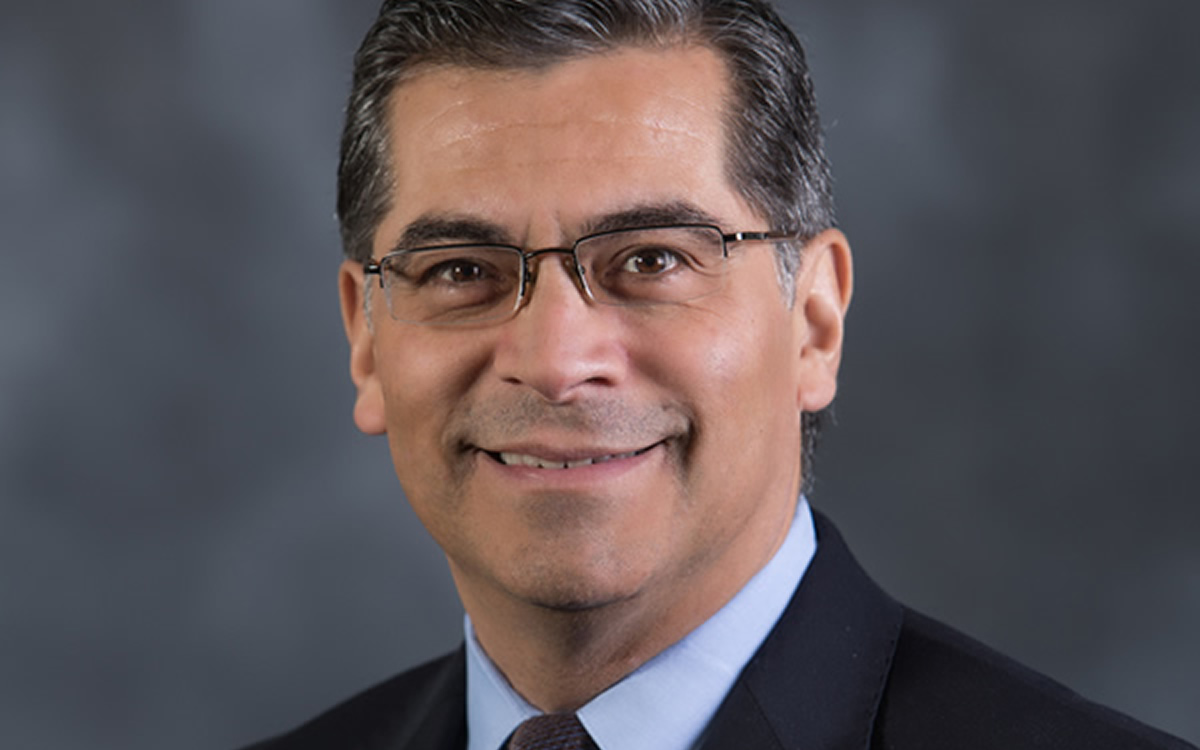National
Log Cabin says Boehner helpful on ‘Don’t Ask’ vote
GOP election victories shine spotlight on gay Republican group

Rep. John Boehner (R-Ohio), who is expected to become Speaker of the House in January, agreed to a request by the gay GOP group Log Cabin Republicans not to penalize House Republicans who voted in May for repeal of “Don’t Ask, Don’t Tell,” according to the group’s leader.
Log Cabin Executive Director R. Clarke Cooper said Boehner agreed to his request that the House minority leader not order a Republican whip count for an amendment to a defense authorization bill calling for repealing “Don’t Ask, Don’t Tell.” Whip counts are sometimes viewed as a means of pressuring members to vote the way party leaders want them to vote, and House GOP leaders, including Boehner, opposed the repeal amendment.
In what he called a conciliatory gesture, Cooper said Boehner agreed to his request to “no whip” the amendment during a conversation at a political event days before the House voted 234 to 194 on May 27 to approve it. Only five Republicans voted for the amendment, which was introduced by Rep. Patrick Murphy (D-Pa.).
“He did not do a whip count,” Cooper said. “And in the grand scheme of things it’s not the biggest deal on the planet. But I saw it as a positive indicator that he didn’t blow me off.”
The repeal measure died in a Senate filibuster. Senate Democratic leaders have promised to bring it up again later this month in a congressional “lame duck” session, but its prospects for passing are uncertain.
Meanwhile, with Republicans winning control of the House in Tuesday’s midterm elections, LGBT activists and Capitol Hill pundits will likely weigh Cooper’s interaction with Boehner as part of their assessment of whether gay Republicans will have access to and influence with House GOP leaders over pending LGBT legislation.
Although Democrats retained their control of the Senate, most political observers — including LGBT advocates — agree that major LGBT-related bills would have no chance of passing in Congress next year without the consent of Republican leaders like Boehner. And most observers believe House Republicans won’t allow gay bills to come to the House floor for a vote.
Cooper, however, said he and his Log Cabin team have a plan for persuading congressional Republican leaders to consider and agree to a vote on at least two gay bills. According to Cooper, one is an as yet to be unveiled tax reform bill that would address “tax inequities that affect the gay community.” The other is the Employment Non-Discrimination Act, or ENDA, which Democratic leaders declined to bring up for a vote during the past two years. The measure calls for banning employment discrimination based on sexual orientation and gender identity.
Cooper said the tax bill would appeal to “the broader conservative community” while addressing inequities in the gay community.
“We would be attracting new or additional allies that we’ve not had in the past,” he said. “There are several members of Congress right now who don’t have a record, good or bad, or who are unknown to our community. And this gives them an opportunity to put a toe in the water on doing pro-equality measures.”
Cooper said the tax bill, the details of which would be released at the start of the new Congress in January, would help pave the way for more Republican support for ENDA.
Other LGBT organizations issued statements Tuesday night saying the Republican takeover of the House and the increased number of Republicans elected to the Senate would essentially eliminate any chance of passing LGBT bills for at least two years.
National Stonewall Democrats, the Human Rights Campaign and the National Gay & Lesbian Task Force each released statements describing the new crop of Republican leaders as “anti-equality.”
HRC noted that Boehner; Rep. Eric Cantor (R-Va.), the expected new House majority leader; and Rep. Mike Pence (R-Ind.), the expected majority whip, each received an HRC scorecard rating of “0” on LGBT issues over the past two years.
D.C. Council member David Catania (I-At-Large), who won election to another term on Tuesday, said his opinion of the Republican Party as an impediment to LGBT equality hasn’t changed since he left the party in 2004 over its support for a constitutional amendment to ban same-sex marriage.
“If the question is what impact gay Republicans will have in a Republican-controlled Congress, the answer is none,” Catania said. “And if the last 10 years has demonstrated anything it’s that the Republican Party has no interest in a big tent, no interest in having gay Republicans at the table.”
“And the fact that gay Republicans continue to live in a fantasy land as if they mattered to the establishment in the GOP is mind blowing,” he said.
A spokesperson for House Speaker Nancy Pelosi (D-Calif.), who will be replaced as speaker by Boehner in January, gave an equally harsh assessment of the influence of gay Republicans under the new Congress.
“They have got to be drinking some serious Kool-Aid over at Log Cabin Republicans’ headquarters,” said Pelosi spokesperson Drew Hammill. “To think that a Republican majority would do anything to advance equality for the LGBT community is simply delusional.”
Mara Keisling, executive director of the National Center for Transgender Equality, which has been among the lead groups lobbying for ENDA, said she hopes Log Cabin does have access and influence over congressional GOP leaders.
But she noted that some of Log Cabin’s effort could be undercut by what appears to be a rival gay Republican group, GOProud.
Founded by conservative gay GOP activist Christopher Barron, who broke away from Log Cabin two years ago, GOProud received criticism from LGBT activists this fall for producing a campaign ad calling for the defeat of gay Rep. Barney Frank (D-Mass.). The ad accused Frank of being responsible for “the financial meltdown that devastated our economy” in his role as chair of the House committee that approved government bailouts for banks.
Other activists note that Log Cabin had its own financial meltdown in 2008, when money problems resulted in the layoff of its entire Washington staff. The group’s board and state and local chapters remained active and kept the group going until funds were raised to hire a new executive director and a small Washington staff.
Cooper and other Log Cabin supporters strongly dispute claims that congressional GOP leaders will ignore the group. They note that unlike the last GOP takeover of Congress, virtually none of the current crop of Republican candidates ran on an anti-gay or anti-same-sex marriage platform. Economic issues and the Tea Party-led revolt this year against “big government” overshadowed social issues like gay marriage, Cooper and other Log Cabin members said.
Richard Tafel, who served as Log Cabin’s executive director in the 1990s, told the Blade Tuesday that he believes the new GOP-controlled House will be far more receptive to LGBT equality issues than the GOP Congress he contended with nearly a decade ago.
“I think the Republicans have learned a very harsh lesson from the ‘90s, when I was there, which is gay bashing didn’t work. It was fundamentally a flaw … the Tea Party is all about fiscal responsibility,” he said, adding that the new GOP leadership will likely follow that path rather than expend resources opposing gay equality issues.
Gay Republican activist Jim Driscoll, who served on the Presidential Advisory Council on HIV/AIDS during the Bush administration, said Log Cabin’s influence “will be heavily dependent” on its willingness to support Republicans on non-LGBT issues like the economy and GOP positions on AIDS programs.
“Regardless of how Log Cabin fares, I believe that most Republican offices will be more receptive to openly gay Republicans than any time before,” Driscoll said. “Republicans will realize that this election was not won on social issues or gay baiting. In fact, nearly all Republican strategists and consultants advised their candidates to keep quiet or tone down on this one.”
Federal Government
HHS reverses Trump-era anti-LGBTQ rule
Section 1557 of the Affordable Care Act now protects LGBTQ people

The U.S. Department of Health and Human Services Office for Civil Rights has issued a final rule on Friday under Section 1557 of the Affordable Care Act advancing protections against discrimination in health care prohibiting discrimination on the basis of race, color, national origin, age, disability, or sex (including pregnancy, sexual orientation, gender identity, and sex characteristics), in covered health programs or activities.
The updated rule does not force medical professionals to provide certain types of health care, but rather ensures nondiscrimination protections so that providers cannot turn away patients based on individual characteristics such as being lesbian, gay, bisexual, transgender, queer, intersex, or pregnant.
“This rule ensures that people nationwide can access health care free from discrimination,” said HHS Secretary Xavier Becerra. “Standing with communities in need is critical, particularly given increased attacks on women, trans youth, and health care providers. Health care should be a right not dependent on looks, location, love, language, or the type of care someone needs.”
The new rule restores and clarifies important regulatory protections for LGBTQ people and other vulnerable populations under Section 1557, also known as the health care nondiscrimination law, that were previously rescinded by the Trump administration.
“Healthcare is a fundamental human right. The rule released today restores critical regulatory nondiscrimination protections for those who need them most and ensures a legally proper reading of the Affordable Care Act’s healthcare nondiscrimination law,” said Omar Gonzalez-Pagan, counsel and health care strategist for Lambda Legal.
“The Biden administration today reversed the harmful, discriminatory, and unlawful effort by the previous administration to eliminate critical regulatory protections for LGBTQ+ people and other vulnerable populations, such as people with limited English proficiency, by carving them out from the rule and limiting the scope of entities to which the rule applied,” Gonzalez-Pagan added. “The rule released today has reinstated many of these important protections, as well as clarifying the broad, intended scope of the rule to cover all health programs and activities and health insurers receiving federal funds. While we evaluate the new rule in detail, it is important to highlight that this rule will help members of the LGBTQ+ community — especially transgender people, non-English speakers, immigrants, people of color, and people living with disabilities — to access the care they need and deserve, saving lives and making sure healthcare professionals serve patients with essential care no matter who they are.”
In addition to rescinding critical regulatory protections for LGBTQ people, the Trump administration’s rule also limited the remedies available to people who face health disparities, limited access to health care for people with Limited English Proficiency, and dramatically reduced the number of healthcare entities and health plans subject to the rule.
Lambda Legal, along with a broad coalition of LGBTQ advocacy groups, filed a lawsuit challenging the Trump administration rule, Whitman-Walker Clinic v. HHS, and secured a preliminary injunction preventing key aspects of the Trump rule from taking effect.
These included the elimination of regulatory protections for LGBTQ people and the unlawful expansion of religious exemptions, which the new rule corrects. The preliminary injunction in Whitman-Walker Clinic v. HHS remains in place. Any next steps in the case will be determined at a later time, after a fulsome review of the new rule.
GLAAD President Sarah Kate Ellis released the following statement in response to the news:
“The Biden administration’s updates to rules regarding Section 1557 of the ACA will ensure that no one who is LGBTQI or pregnant can face discrimination in accessing essential health care. This reversal of Trump-era discriminatory rules that sought to single out Americans based on who they are and make it difficult or impossible for them to access necessary medical care will have a direct, positive impact on the day to day lives of millions of people. Today’s move marks the 334th action from the Biden-Harris White House in support of LGBTQ people. Health care is a human right that should be accessible to all Americans equally without unfair and discriminatory restrictions. LGBTQ Americans are grateful for this step forward to combat discrimination in health care so no one is barred from lifesaving treatment.”
The White House
Four states to ignore new Title IX rules protecting transgender students
Biden administration last Friday released final regulations

BY ERIN REED | Last Friday, the Biden administration released its final Title IX rules, which include protections for LGBTQ students by clarifying that Title IX forbids discrimination based on sexual orientation and gender identity.
The rule change could have a significant impact as it would supersede bathroom bans and other discriminatory policies that have become increasingly common in Republican states within the U.S.
As of Thursday morning, however, officials in at least four states — Oklahoma, Louisiana, Florida, and South Carolina — have directed schools to ignore the regulations, potentially setting up a federal showdown that may ultimately end up in a protracted court battle in the lead-up to the 2024 elections.
Louisiana State Superintendent of Education Cade Brumley was the first to respond, decrying the fact that the new Title IX regulations could block teachers and other students from exercising what has been dubbed by some a “right to bully” transgender students by using their old names and pronouns intentionally.
Asserting that Title IX law does not protect trans and queer students, Brumley states that schools “should not alter policies or procedures at this time.” Critically, several courts have ruled that trans and queer students are protected by Title IX, including the 4th U.S. Circuit Court of Appeals in a recent case in West Virginia.
In South Carolina, Schools Supt. Ellen Weaver wrote in a letter that providing protections for trans and LGBTQ students under Title IX “would rescind 50 years of progress and equality of opportunity by putting girls and women at a disadvantage in the educational arena,” apparently leaving trans kids out of her definition of those who deserve progress and equality of opportunity.
She then directed schools to ignore the new directive while waiting for court challenges. While South Carolina does not have a bathroom ban or statewide “Don’t Say Gay or Trans” law, such bills continue to be proposed in the state.
Responding to the South Carolina letter, Chase Glenn of Alliance For Full Acceptance stated, “While Supt. Weaver may not personally support the rights of LGBTQ+ students, she has the responsibility as the top school leader in our state to ensure that all students have equal rights and protections, and a safe place to learn and be themselves. The flagrant disregard shown for the Title IX rule tells me that our superintendent unfortunately does not have the best interests of all students in mind.”
Florida Education Commissioner Manny Diaz also joined in instructing schools not to implement Title IX regulations. In a letter issued to area schools, Diaz stated that the new Title IX regulations were tantamount to “gaslighting the country into believing that biological sex no longer has any meaning.”
Governor Ron DeSantis approved of the letter and stated that Florida “will not comply.” Florida has notably been the site of some of the most viciously anti-queer and anti-trans legislation in recent history, including a “Don’t Say Gay or Trans” law that was used to force a trans female teacher to go by “Mr.”
State Education Supt. Ryan Walters of Oklahoma was the latest to echo similar sentiments. Walters has recently appointed the right-wing media figure Chaya Raichik of Libs of TikTok to an advisory role “to improve school safety,” and notably, Raichik has posed proudly with papers accusing her of instigating bomb threats with her incendiary posts about LGBTQ people in classrooms.
The Title IX policies have been universally applauded by large LGBTQ rights organizations in the U.S. Lambda Legal, a key figure in fighting anti-LGBTQ legislation nationwide, said that the regulations “clearly cover LGBTQ+ students, as well as survivors and pregnant and parenting students across race and gender identity.” The Human Rights Campaign also praised the rule, stating, “rule will be life-changing for so many LGBTQ+ youth and help ensure LGBTQ+ students can receive the same educational experience as their peers: Going to dances, safely using the restroom, and writing stories that tell the truth about their own lives.”
The rule is slated to go into effect Aug. 1, pending any legal challenges.
****************************************************************************

Erin Reed is a transgender woman (she/her pronouns) and researcher who tracks anti-LGBTQ+ legislation around the world and helps people become better advocates for their queer family, friends, colleagues, and community. Reed also is a social media consultant and public speaker.
******************************************************************************************
The preceding article was first published at Erin In The Morning and is republished with permission.
Pennsylvania
Malcolm Kenyatta could become the first LGBTQ statewide elected official in Pa.
State lawmaker a prominent Biden-Harris 2024 reelection campaign surrogate

Following his win in the Democratic primary contest on Wednesday, Pennsylvania state Rep. Malcolm Kenyatta, who is running for auditor general, is positioned to potentially become the first openly LGBTQ elected official serving the commonwealth.
In a statement celebrating his victory, LGBTQ+ Victory Fund President Annise Parker said, “Pennsylvanians trust Malcolm Kenyatta to be their watchdog as auditor general because that’s exactly what he’s been as a legislator.”
“LGBTQ+ Victory Fund is all in for Malcolm, because we know he has the experience to win this race and carry on his fight for students, seniors and workers as Pennsylvania’s auditor general,” she said.
Parker added, “LGBTQ+ Americans are severely underrepresented in public office and the numbers are even worse for Black LGBTQ+ representation. I look forward to doing everything I can to mobilize LGBTQ+ Pennsylvanians and our allies to get out and vote for Malcolm this November so we can make history.”
In April 2023, Kenyatta was appointed by the White House to serve as director of the Presidential Advisory Commission on Advancing Educational Equity, Excellence and Economic Opportunity for Black Americans.
He has been an active surrogate in the Biden-Harris 2024 reelection campaign.
-

 District of Columbia4 days ago
District of Columbia4 days agoCatching up with the asexuals and aromantics of D.C.
-

 South America4 days ago
South America4 days agoArgentina government dismisses transgender public sector employees
-

 Maine5 days ago
Maine5 days agoMaine governor signs transgender, abortion sanctuary bill into law
-

 District of Columbia5 days ago
District of Columbia5 days agoBowser budget proposal calls for $5.25 million for 2025 World Pride











